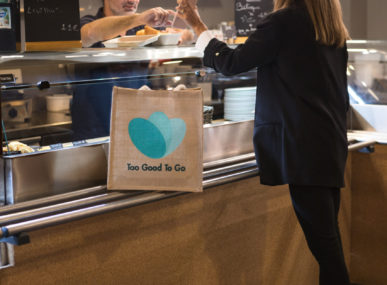Whole Surplus combines the co-founders’ expertise in entrepreneurship and technology. Chief executive officer Silahli worked for several years as a brand manager with global food conglomerate Unilever, where he also oversaw several food waste responsibility projects.
During his time with Unilever, Silahli observed glaring deficiencies in food supply chains, along with another serious problem: “There was no sustainable initiative to tackle food waste.”
Chief technical officer Eren, who holds degrees in computer science and business administration, helped his close friend Silahli to fill this gap online. In 2016, the pair established Whole Surplus after conducting extensive feasibility studies.
Whole Surplus operates on the idea that food retailers do not want to waste food; they just do not know how to put it to optimal use. “Food businesses lack the required skills to manage their surplus effectively,” said Silahli.
The online platform satisfies this need by providing retailers with connections, an electronic payment system, and other logistical support to help retailers find recipients for surplus food. By signing up to the website, users can access extra produce from restaurants, supermarkets, and other food retailers.
This sophisticated digital infrastructure removes the hassle of each business forging its own links to the secondary food market. Whole Surplus members can also take advantage of the website’s data analytics, allowing companies to identify exactly where food waste occurs in their supply chains.



